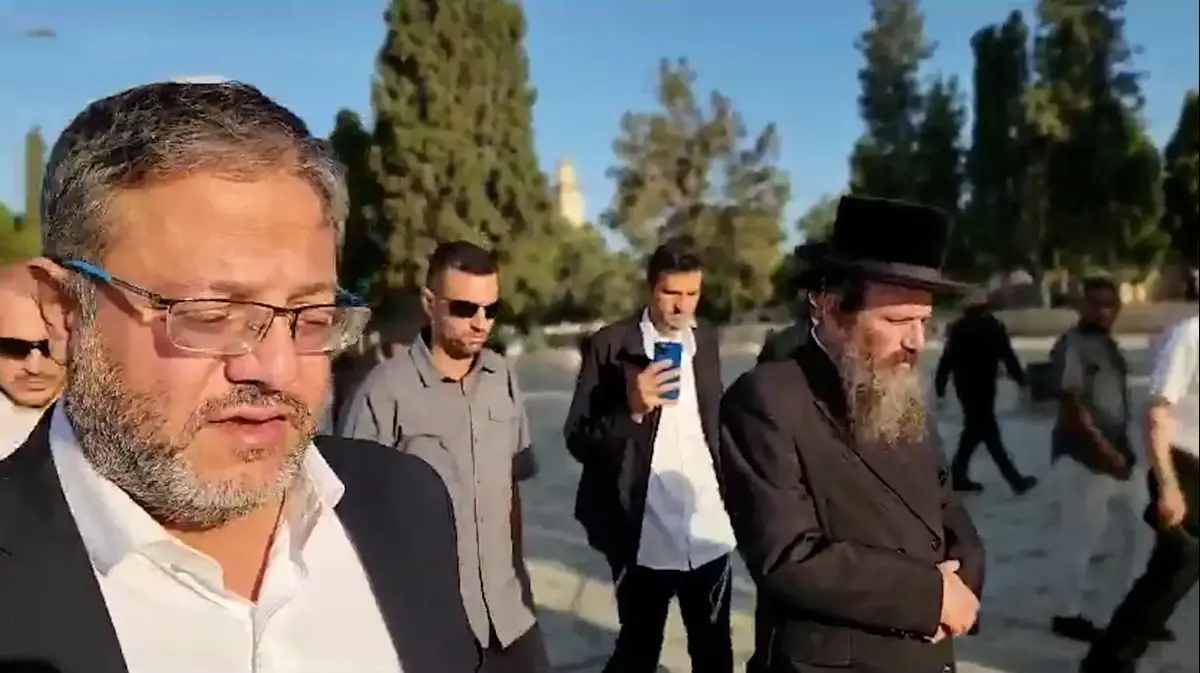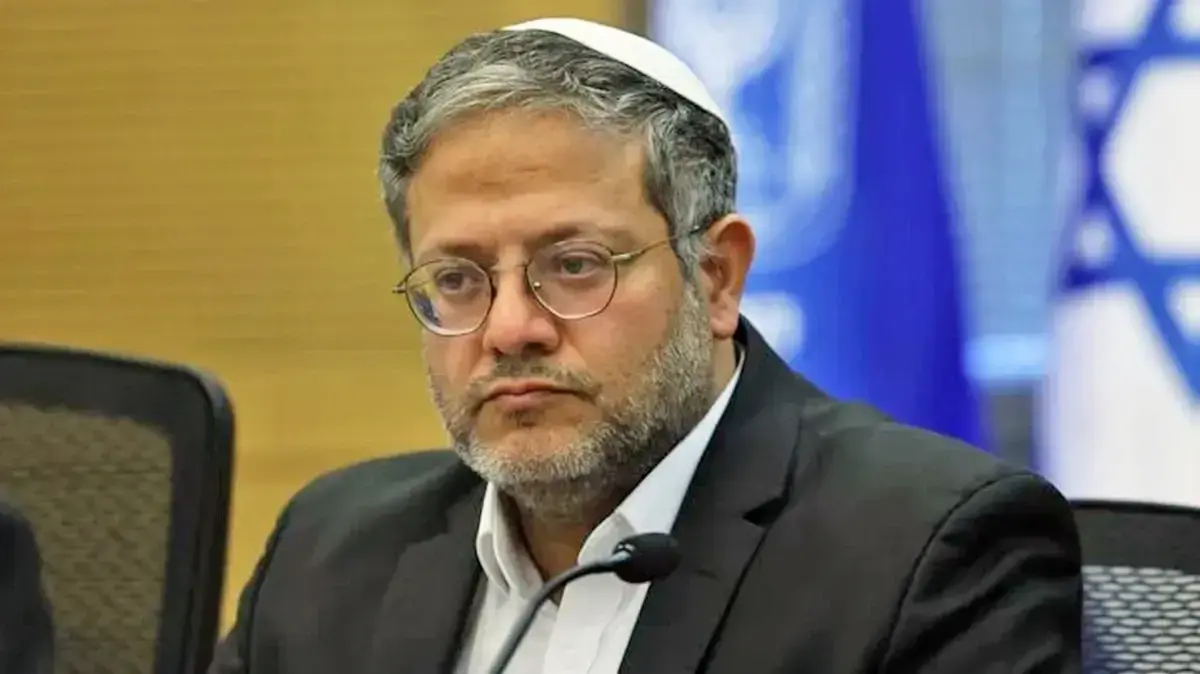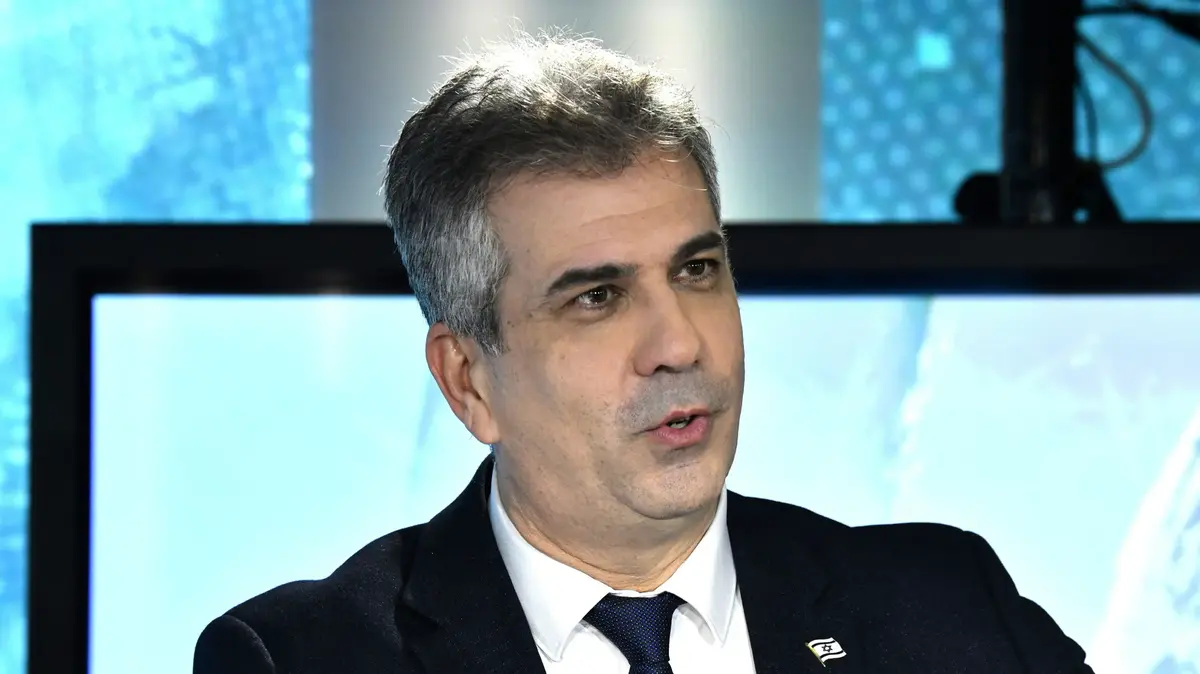A few months ago, the old sign that stood at the entrance to the Temple Mount was removed, which stated that it is forbidden to go up to the mountain for religious reasons, and in its place were hung signs that read "May your prayers be accepted".
When it became clear to the Chief Rabbinate, and the Western Wall Heritage Foundation about the trespassing, they rushed to correct what they saw as a distortion.
New and large signs were hung on the Mount: "Notice and warning. According to Torah law, it is forbidden for anyone to enter the Temple Mount because of its sanctity. The Chief Rabbinate of Israel."
And this, in a nutshell, is the core of the conflict within the religious world, on the question of whether it is permissible to go up to the Temple Mount.
"Why are the ultra-Orthodox actually angry that Ben Gvir is going up to the Temple Mount," quite a few people asked in the past day.
After all, in terms of political opinion, the ultra-Orthodox are right-wing, sometimes even very right-wing.
Thus, this week the new Minister of Housing Yitzhak Goldknopf sent a letter to Minister of National Security Itamar Ben Gabir and Minister of Science Ofir Akunis a letter in which he urged them to act together with him to change the address of the government buildings where they operate from "East Jerusalem" to "Jerusalem".
However, when it comes to the Temple Mount, matters are more complicated, and go to the very heart of Judaism as it is perceived today in the eyes of the ultra-Orthodox and the religious.
MK Yitzhak Goldknopf, photo: Oren Ben Hakon
If you ask the average ultra-Orthodox what is the holiest place for the Jewish people, they will simply answer "the Western Wall".
The reason for this is that the Temple Mount is, for many, a kind of unattainable place.
So holy that only Messiah himself can approve the ascension to him.
This is also the reason that very shortly after the liberation of the Temple Mount, the Chief Rabbinate pushed to return the keys to the Jordanian Waqf.
My position and I said this to Minister Ben Gabvir @itamarbengvir also this morning is that according to Halacha it is forbidden to go up to the Temple Mount. The elders of Israel throughout their generations from all denominations and circles forbade this and said it is an absolute obligation. I hope that Minister Ben Gabvir listens to these things because it only does harm and we do not benefit from it is nothing.
— Member of Knesset Moshe Gafni (@mk_moshe_gafni) January 4, 2023
The ultra-orthodox rely on two Halacha rulings.
In the book series "The Mishnah Berura", one of the most important book series in Judaism today, it is written in the commentary: "He who now enters a holy place must acknowledge that we are all impure dead and that the first sanctity is sanctified for its time and sanctified for the future to come."
The second ruling, written hundreds of years earlier by Rabbi Moshe ben Maimon, the Rambam, also provides a counterpoint to the prohibition: "Even though the temple today has been destroyed in our times, a person is obliged to observe it in the same way as he used to do it in our buildings, he shall not enter except where it is permitted to enter there.. . When it is said 'You shall keep my Sabbaths and you shall fear my temple', what is the observance of the Sabbath for ever, even a holy fear for ever, which, though a sword - in its sanctity stands."
Ben Gabir visits the Temple Mount // Credit: The use is made in accordance with Section 27A of the Copyright Law
However, another quote by the Rambam also provides an opening for those who wish to climb the mountain. "And on Tuesday, Shabbat, four days into the month of Marashvan, in the twenty-sixth year of creation, we left Acre to go to Jerusalem under danger, and I entered the great and holy house and prayed there." So is it permissible to climb the mountain or is it forbidden? The question of the questions with which religious Zionism grapples.
There are divided opinions in the national religious sector.
One approach believes that entry to the mountain is prohibited until the coming of the Messiah, then we will know exactly where it is permissible and forbidden to go, we will not be impure and dead (a status in which every Jew is today in the absence of the possibility of purification, and which prohibits entry into the Temple area).
Another approach believes that it is permissible, and even necessary, to go up to the Temple Mount, to the permitted places.
Rambam, they say, states that it is permissible to climb parts of the mountain, and the question is exactly where it is allowed and where it is not.
Ben Gvir on his way to the Temple Mount, photo: no credit
The faithful of the Temple Mount have maps where they point out exactly where it is permissible to climb and where it is forbidden under any circumstances to set foot, because that is where the Temple is believed to have been.
A third group is silent: they personally believe that one should not climb the mountain, but believe that it is a clear act of sovereignty and therefore do not forbid it.
And this is why Ben Gvir ascends the mountain despite the opposition of the ultra-Orthodox.
The rabbi of the Minister of National Security, Rabbi Dov Lior, is one of the greatest rabbis in religious Zionism who believes that one should go up to the Temple Mount.
"Anything they raise more, it will inspire our brothers the Bnei Yisrael to redeem the place, to return the ownership of the entire Temple Mount to the people of Israel," said Rabbi Lior in the past.
However, it should be noted that Rabbi Lior himself also set very clear boundaries for where it is permissible and forbidden to ascend, boundaries that not necessarily all rabbis agree with.
But looking at it, the ascent to the Temple Mount can be seen as one of the main things that essentially differentiates the ultra-orthodox from the national religions.
A significant part of the ultra-Orthodox world still believes that it is forbidden to forcefully push for redemption - the coming of the Messiah and the establishment of the Temple.
The thing, they believe, should come when God wills it, or as a code name - the Temple will land from heaven.
Religious Zionism, on the other hand, believes that the State of Israel is the beginning of redemption, and that active actions must be taken to bring it closer.
Among the acts - going up to the Temple Mount as an act of sovereignty.
So why did Ben Gvir anger the ultra-Orthodox?
A view that is thousands of years old that perceives the exile and the return to Zion as a divine act that has not yet occurred versus a relatively new view that believes that redemption is already on its way and that we must recognize it and help it to be realized.
This is also the reason why there is no chance of convincing one of the parties that the other is right.
And good luck to us.
were we wrong
We will fix it!
If you found an error in the article, we would appreciate it if you shared it with us















